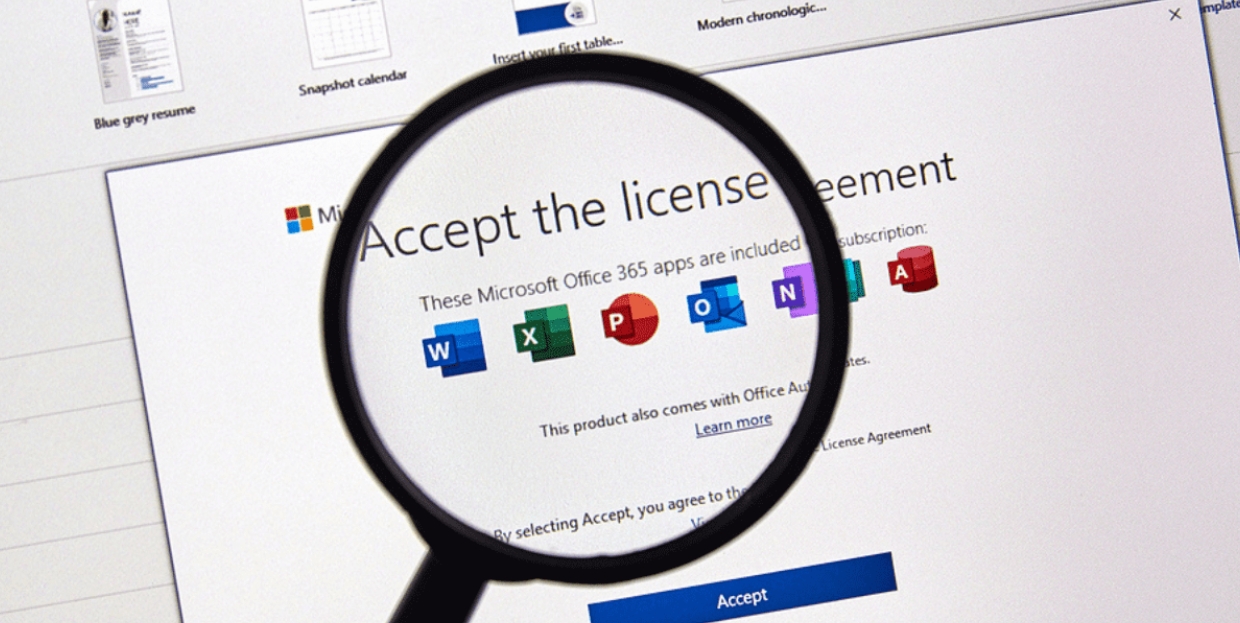The Impact of Microsoft Co-Pilot on Data Access and Security for Businesses

Introduction
Microsoft Co-Pilot has emerged as a game-changer for businesses. As a powerful tool integrated into Microsoft’s suite of applications, Co-Pilot promises to redefine productivity and efficiency. However, with its advanced capabilities come significant implications for data access and security. In this blog post, we’ll delve into what Co-Pilot is, its impact on data access and security, and why engaging a Cloud Solution Provider can be a key strategy for businesses.
What is Microsoft Co-Pilot?
Microsoft Co-Pilot is an AI-powered assistant embedded within Microsoft Office apps like Word, Excel, and Outlook. It leverages large language models (LLMs) and advanced algorithms to help users with tasks such as drafting text, generating summaries, and automating repetitive processes. Essentially, it’s designed to act as a smart assistant that can enhance productivity by interpreting user commands and providing contextually relevant outputs.
Implications for Data Access
1. Enhanced Efficiency vs. Increased Data Exposure:
Co-Pilot’s ability to process and analyze data swiftly can greatly enhance efficiency. For instance, in Excel, it can automatically generate complex formulas or offer insights from large datasets. However, this enhanced efficiency comes with increased access to sensitive data. As Co-Pilot interacts with various datasets, there’s a risk of inadvertently exposing confidential information.
2. Streamlined Collaboration:
Co-Pilot supports seamless collaboration by allowing multiple users to work on documents or projects simultaneously, with real-time updates and suggestions. While this can improve teamwork, it also raises concerns about who has access to what information. Managing permissions and ensuring that sensitive data remains protected during collaborative efforts becomes crucial.
3. Customization and Contextual Understanding:
Co-Pilot can tailor its suggestions based on the context of the document or data being worked on. This contextual understanding requires access to a broad range of information, which, if not managed properly, could lead to unauthorized data exposure. Ensuring that Co-Pilot’s customization features are aligned with data privacy policies is essential.
Implications for Data Security
1. Security Protocols and Compliance:
The integration of Co-Pilot necessitates robust security protocols to safeguard data. Businesses need to ensure that Co-Pilot adheres to compliance standards like GDPR, CCPA, and others relevant to their industry. This includes managing data access controls, encryption, and secure data storage.
2. Risk of Data Leakage:
With Co-Pilot handling and processing data, there’s a potential risk of data leakage. Businesses must implement strict data access controls and monitor Co-Pilot’s interactions with sensitive information. Regular audits and vulnerability assessments can help in identifying and mitigating potential risks.
3. AI Bias and Data Integrity:
AI systems like Co-Pilot can sometimes exhibit biases based on the data they were trained on. Ensuring that the AI adheres to principles of fairness and accuracy is important for maintaining data integrity. Businesses should be proactive in addressing any biases or inaccuracies that might arise.
4. User Training and Awareness:
Effective use of Co-Pilot involves not just understanding its functionalities but also being aware of data security practices. Training users on how to interact with Co-Pilot while maintaining data security is crucial. This includes understanding how to manage data access settings and recognizing potential security threats.
The Importance of Partnering with a Cloud Solution Provider
1. Expertise in License Management:
Managing Microsoft 365 licenses efficiently requires a nuanced understanding of the various plans, features, and compliance requirements. Cloud solution providers have specialized knowledge in navigating the complexities of Microsoft 365 licensing. They can help you choose the right plans that aligns with your business needs and ensure that you’re not overpaying or missing out on critical features.
2. Enhanced Security and Compliance:
Cloud Solution Providers are well-versed in implementing security measures and ensuring compliance with industry regulations. They can help you configure security settings for Co-Pilot, manage data access controls, and ensure that your setup adheres to legal and regulatory standards. This expertise is crucial in mitigating risks associated with data exposure and ensuring robust protection.
3. Centralized Management and Support:
Managing Microsoft 365 licenses, especially with advanced tools like Co-Pilot, can be complex. Cloud solution providers offer centralized management and support, streamlining administrative tasks and helping with any issues that arise. This centralized approach ensures that you can focus on your core business activities while leaving the technical complexities to experts.
4. Scalability and Flexibility:
As your business grows, so will your needs for Microsoft 365 licenses and services. Cloud solution providers can offer scalable solutions that adjust to your evolving requirements. Whether you need to add or remove licenses, adjust security settings, or integrate new features, a cloud provider can facilitate these changes seamlessly.
5. Cost Efficiency:
Engaging a cloud solution provider can also lead to cost savings. They can help optimize your license usage and identify opportunities for savings, such as bundling services or adjusting plans based on actual usage. This ensures that you’re making the most of your investment in Microsoft 365.
Conclusion
Microsoft Co-Pilot is set to revolutionize the way businesses operate, offering unprecedented levels of productivity and efficiency. However, its advanced capabilities come with significant responsibilities regarding data access and security. Partnering with a cloud solution provider can be instrumental in managing your Microsoft 365 licenses effectively, ensuring robust security, and optimizing costs. By understanding the implications of Co-Pilot and leveraging expert support, businesses can harness its power while safeguarding their sensitive information and maintaining compliance.
Explore more on:





